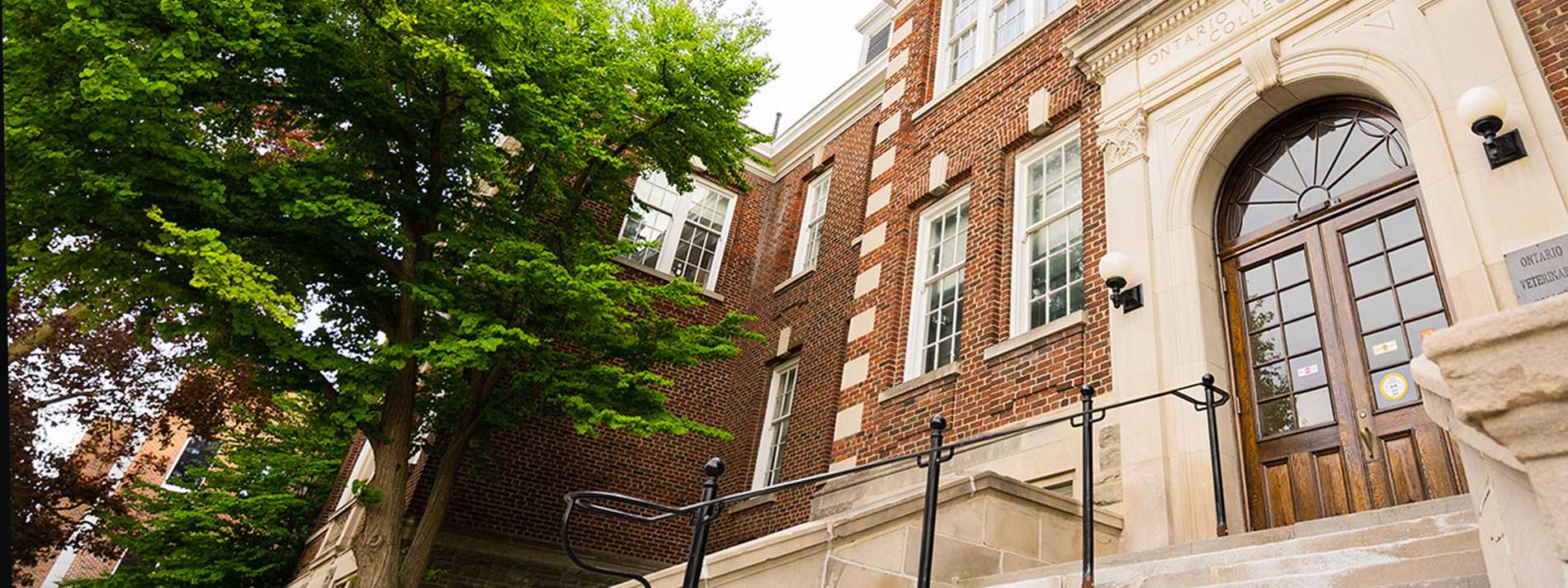
Three OVC Research Projects Receive Federal Funding
September 21, 2022
Three research projects at the Ontario Veterinary College are among 11 University of Guelph projects that have been awarded federal funding.
The federal government will invest more than $1.1 million in the 11 U of G projects, ranging from clean energy to food spoilage to Indigenous environmental health.
The Canada Foundation for Innovation (CFI) will fund the projects through its John R. Evans Leaders Fund, which helps universities recruit and retain outstanding faculty and provides researchers with infrastructure required to become leaders in their fields.
These U of G awards are part of more than $64 million in CFI funding to support 251 new research infrastructure projects at 40 institutions across Canada.
“This generous and strategic CFI investment will provide exceptional University of Guelph researchers with the vital tools they need to expand knowledge and advance the boundaries of discovery and innovation,” said Dr. Malcolm Campbell, vice-president (research). “These researchers each explore different questions, but they all aim to broaden their disciplines and improve life in meaningful ways.”
“I am pleased to see the Canadian government continue to fund primary researchers at the University of Guelph through the Canada Foundation of Innovation JELF program,” said Lloyd Longfield, MP for Guelph. “This support shows the range of research happening at the U of G including clean energy, healthful food, cell production to fight disease, and our understanding of pain. These projects contribute to One Health that connects life in all forms.”
From the Ontario Veterinary College:
Dr. Giannina Descalzi

Dr. Giannina Descalzi, OVC’s Department of Biomedical Sciences, will receive $130,000 to study the mechanisms that cause acute pain to become persistent chronic pain.
Chronic pain changes the activity within brain regions involved in emotion. Using animal models, Descalzi will track changes across this pain–emotion brain circuit as acute pain transitions to chronic pain and will investigate the molecular causes.
To precisely control, monitor, and record the electrical activity of neural circuits, she will use an integrated calcium imaging and optogenetics system in combination with molecular techniques.
Improved understanding of the molecular, cellular and circuit basis of chronic pain will lead to better treatment options for humans and animals.
Drs. Courtney Schott and Mauricio Seguel


A more complete understanding of autophagy, one of the body’s cellular housekeeping processes, is the goal of a $145,336 project by Drs. Courtney Schott and Mauricio Seguel, both in OVC's Department of Pathobiology.
The body regularly recycles damaged cells to maintain normal function, moderate the negative effects of stress aging and fight disease. Little is currently known about the links among immune system health, cancer and autophagy.
Seguel and Schott will study autophagy regulation in both immune system health and cancer progression. They will acquire a live cell imager to study how autophagy unfolds over time in immune and cancer cells.
This research will aid in the development of alternative treatments for cancer and aging in both animals and humans.
See the full news release on the University of Guelph website.
.png)